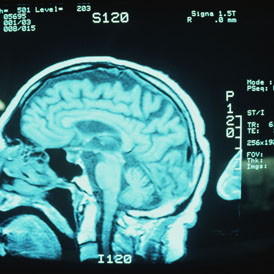Things to do to lower the risk of dementia
As the government announces a £54m funding boost for dementia research, Channel 4 News looks at what people can do to reduce the risk of a disease which affects 800,000 people in the UK.

Launching the Alzheimer’s Society’s national conference, the prime minister declared that tackling the “national crisis” posed by the disease is one of his personal priorities.
Mr Cameron said it was a “scandal” that more had not been done to address dementia, which the Alzheimer’s Society says affects 800,000 people in the UK. Over the next 10 years, the number with the disease is expected to rise to one million.
Care Services Minister Paul Burstow said: “We know that if we diagnose it earlier in hospitals people will get treated better. They get the dignity they deserve and they often don’t need to stay in hospitals long.
“That saves money but it also delivers good care for them.”
Preventing dementia
According to the Alzheimer’s Society, there is evidence pointing to lifestyle factors as being relevant to whether people develop certains types of dementia.
The society says conditions such as high blood pressure, diabetes and obesity may increase the chances of developing dementia.
Other factors may play a part. For example, women are slightly more at risk of developing Alzheimer’s, though men are more at risk of developing vascular dementia. Also, the older someone gets, the more their risk increases.
“Alzheimer’s researchers have been waiting for this kind of annoucement for a long time,” writes Channel 4 News Science Editor Tom Clarke. “The sheer number of people suffering from dementia makes it, on a per-capita basis, one of the most neglected diseases in British society. A disease that generally strikes people towards the end of their lives has always lost out to the more well-known killers like cancer and heart disease.
“But don’t expect a several tens of millions of pounds more research deliver a cure. Alzheimer’s is one of the most complex and intractable diseases known to science. In recent years great advances have been made around the molecular biology and genetics of brains destroyed by the disease. However, the root cause is still far from understood.
“The latest research seems to indicate that it is closely interconnected with the normal processes of ageing experienced by everyone. Ageing is hard-wired into the cells of our body and it’s likely a far greater understanding of basic biology is needed before the true cause, or causes, of Alzheimer’s are known.
“The pace of progress has meant some major pharmaceutical companies have scaled back their investment in finding single medicines to treat Alzheimers – and only a handful of potentially new treatments are on the horizon. That makes an injection of new research even more important. Many the field hope to see it spent on research towards prevention treatments. These drugs that can slow the onset, or delay the progression of the disease, can make a real difference while a ‘cure’ is most likely a long way off.”
In the light of the above factors, there are some things people can do to help lower their chances of developing some types of dementia.
Vascular dementia (the second most common type of demential after Alzheimer’s)
- Exercise regularly
- Eat a healthy diet high in fibre and low in fat
- Do not smoke and moderate your alcohol intake – smoking can lead to higher blood pressure, a risk factor associated with dementia
- Maintain your weight at a healthy level – obesity in mid-life can increase a person’s risk of developing dementia
Other types of dementia
Stay mentally active by learning a foreign language, musical instrument or simply reading.
There is ongoing research into the possibility that caffeine and various spices and herbs including curcumin (turmeric), sage and lemon balm, might protect the brain, although the evidence is not conclusive.